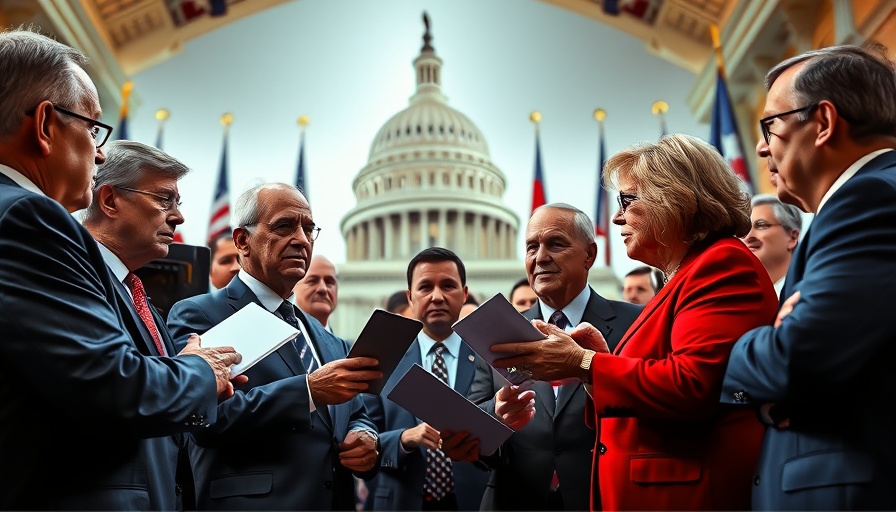
Texas Republicans Take Center Stage with Controversial Biological Sex Legislation
In an unprecedented move, Texas Republicans have ignited a heated debate around the definition of biological sex within state legislation. At the forefront of this contentious issue is Representative Andy Hopper, who recently asserted on the House floor that there are only two biological sexes. This declaration came as he presented an amendment to reduce state funding for the University of Texas at Austin, using the argument of ‘biological reality’ as justification for denying funding to programs he accuses of promoting misinformation regarding sex.
During the debate, Representative Lauren Ashley Simmons challenged Hopper’s assertion by questioning where intersex individuals fit within his binary framework. Hopper, however, stumbled through the follow-up, admitting his ignorance of intersex conditions yet maintaining his stance. “Those intersex individuals are still XX or XY, so you can’t change that,” he reiterated, prompting correction from his ally, Valoree Swanson. Such exchanges exemplify the deep disconnect between political rhetoric and scientific understanding, leaving many marginalized communities—including intersex, transgender, and non-binary individuals—in a precarious position.
Legislation on the Rise: House Bill 229 and Senate Bill 406
The push to solidify binary definitions of sex has manifested in multiple bills aimed at categorizing people in law. Recently, House Bill 229 was passed by the Texas House (87-56), spearheaded by Republican Ellen Troxclair. This bill articulates the terms “male” and “female,” defining them under reproductive roles—“a female is an individual whose biological reproductive system is developed to produce ova.” Troxclair defended the bill, defining it as necessary to ground legal discourse in “biological reality.”
In contrast, Representative Jessica González articulated the dangers of such legislative moves, emphasizing their discriminatory nature against trans Texans. She condemned the pursuit to enforce a binary definition of sex as an exercise in ignorance, warning of the potential harm inflicted upon those whose identities do not align with assigned gender roles.
The Repercussions: Blocking Progress in Texas
Senate Bill 406, introduced by Senator Mayes Middleton, presents further challenges by limiting modifications to sex markers on legal documents, effectively trapping transgender individuals within the constraints of the gender assigned at birth. Critics have described the bill as regressive, asserting it could hinder access to essential identification for trans and gender-expansive individuals.
The implications of these legislative efforts extend beyond individual identity; they threaten to reinforce systemic inequalities and marginalize entire communities. Bills like SB 406 do not merely enshrine a political ideology but enshrine a narrow understanding of existence that fails to recognize the spectrum of human diversity.
A Closer Look: The Political Landscape and Its Implications
As Texas legislators push forward with these contentious bills, they echo a trend seen across various state legislatures where the definition of sex has become a battleground for political ideologies. The recent legal landscape signifies a broader cultural struggle over acceptance, representation, and dignity for LGBTQ+ communities, raising questions about the values that underline legislative actions.
It’s pertinent to consider how these movements influence public perception, especially among those who may not directly identify with these issues but are impacted by the ripple effects of such legislation. Advocates argue that laws defining biological sex not only alienate individuals but also disregard scientific complexities while reducing identity to a simplistic binary.
Charting a Path Forward: Advocacy and Awareness
Despite the challenges posed by these proposed laws, organizations like the Texas Freedom Network are rallying to advocate for the rights and recognition of marginalized communities. Erika Slaymaker’s comment, “If biological sex were as obvious as lawmakers keep insisting that biological sex is, we wouldn’t be here,” reflects a sentiment among advocates who believe that a stronger focus on education and awareness can counter regression and promote understanding in legislative discussions.
This moment in Texas should serve as a wake-up call for all individuals, regardless of their identification, to engage actively in the conversation surrounding sexual identity and rights. By advocating for inclusive policies and amplifying diverse voices, stakeholders can work towards a future where all individuals, irrespective of their gender or biological attributes, have their dignity upheld and their identities respected.
Conclusion: Bridging Divides for a Better Tomorrow
As the Texas legislature pushes to enshrine definitions of biological sex that many consider antiquated and harmful, it is crucial for Texans to foster dialogue, educate the populace, and challenge narratives that seek to undermine marginalized voices. The fight for equality and recognition continues, and it is up to each of us to bridge divides, combat ignorance, and create a future where diversity is celebrated. The stakes are high, and every voice matters.
 Add Row
Add Row  Add
Add 




 Add Row
Add Row  Add
Add 


Write A Comment